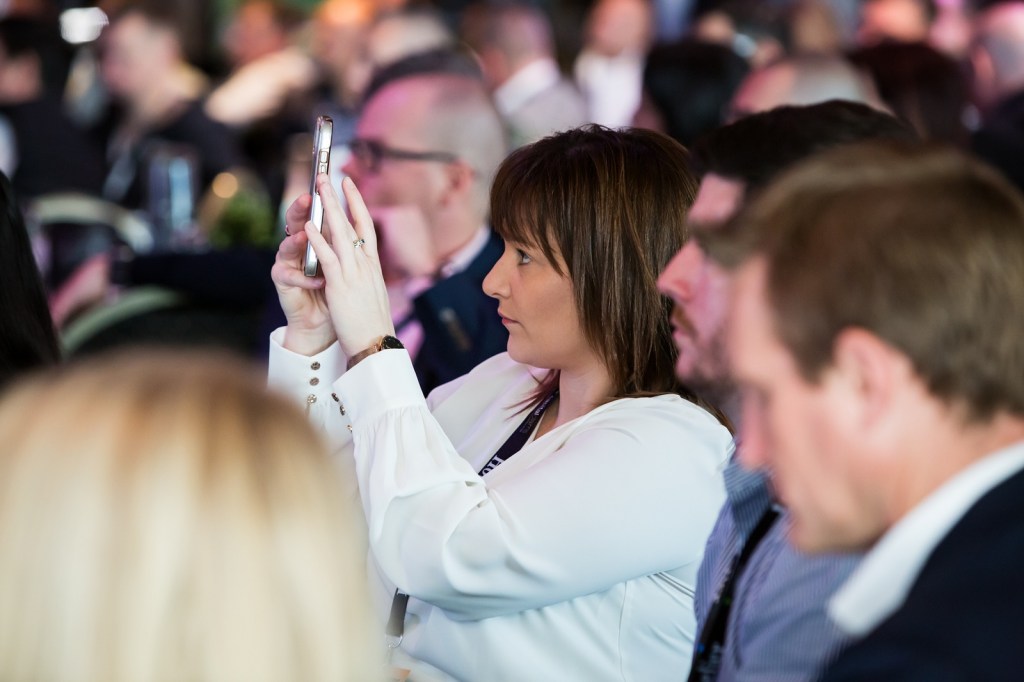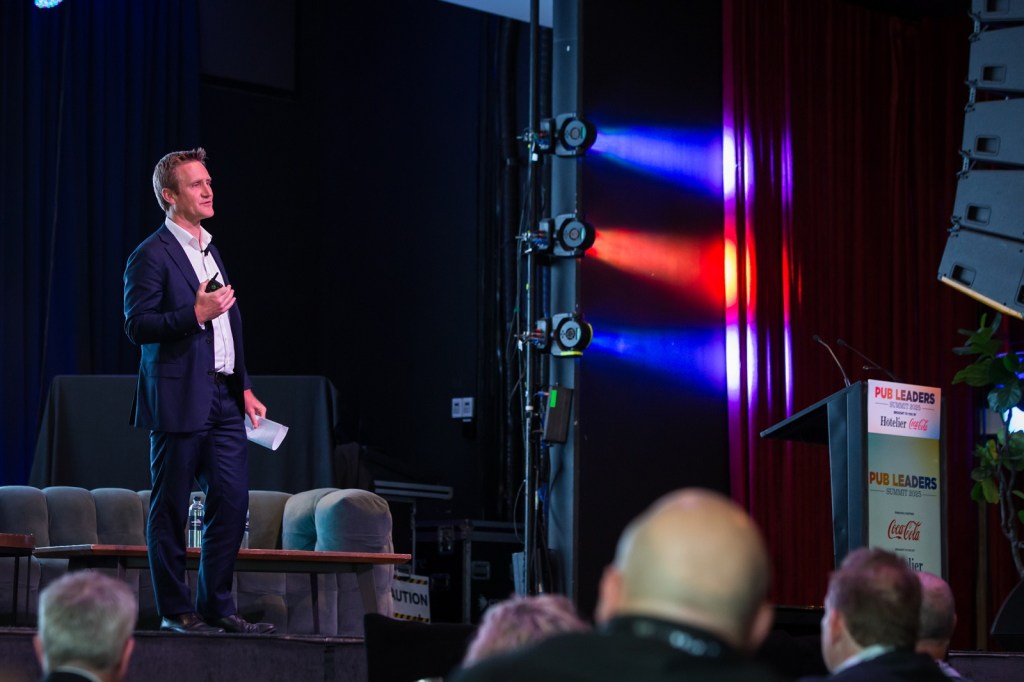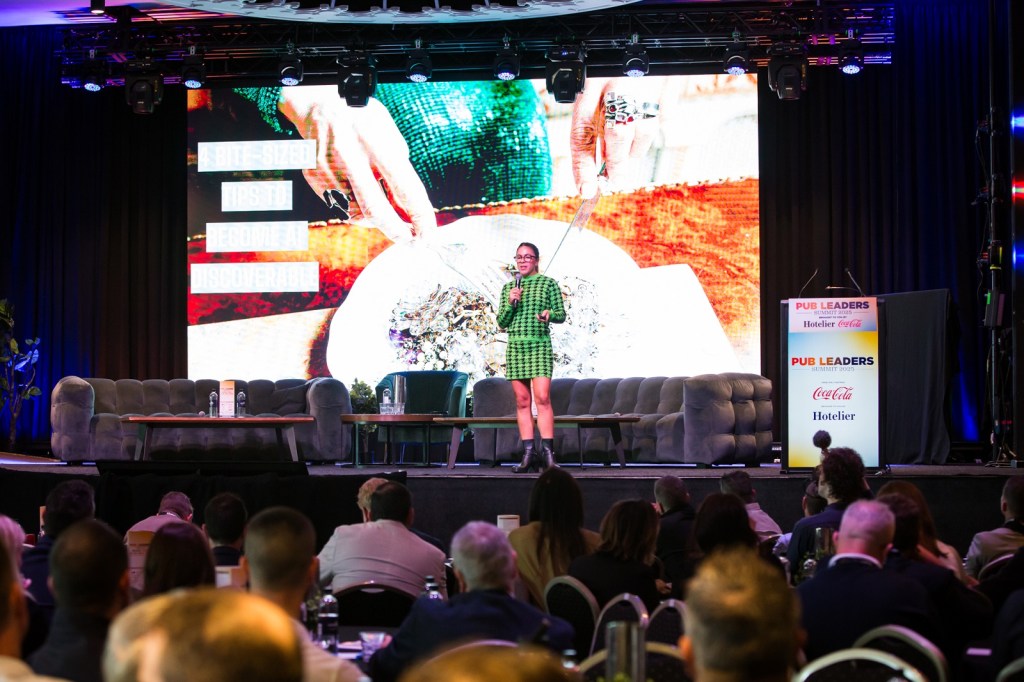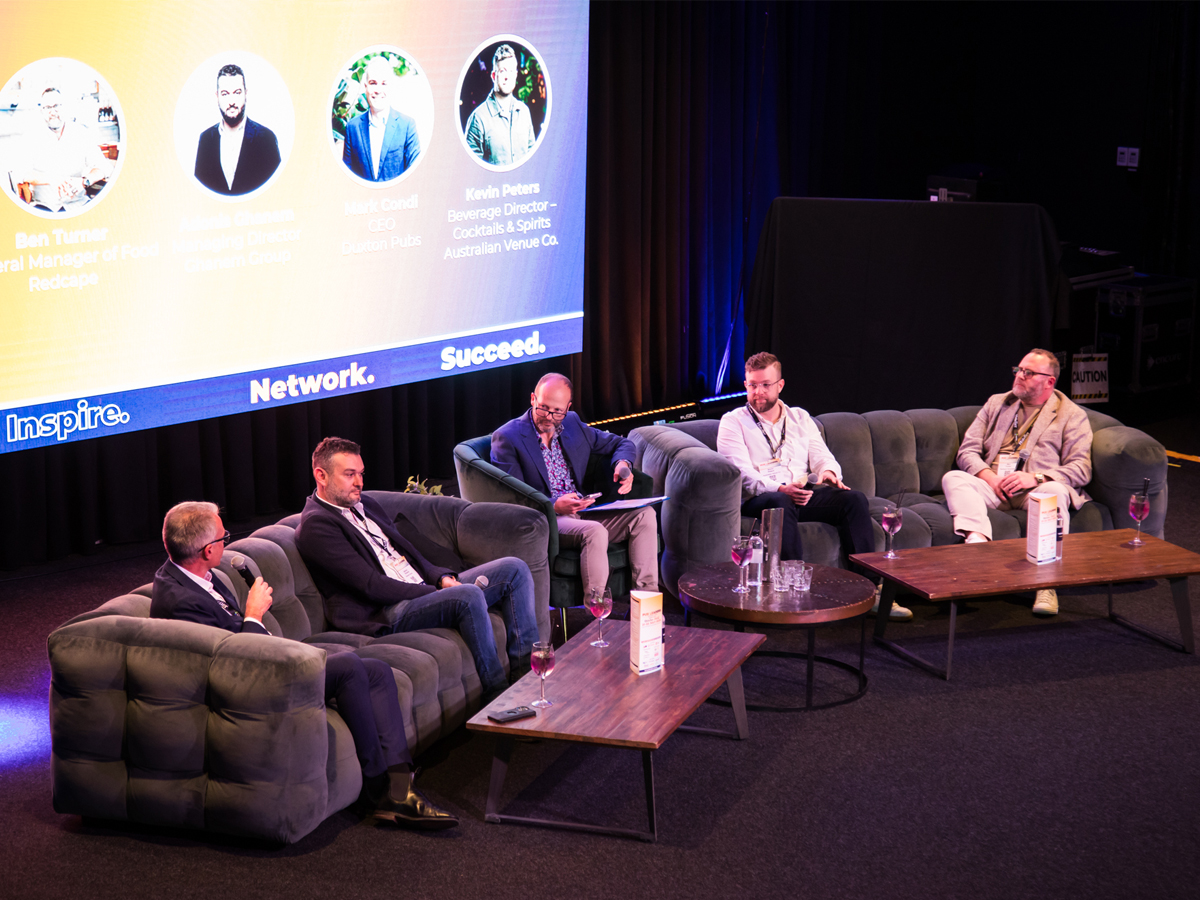The Pub Leaders Summit, brought to you by Australian Hotelier and Coca-Cola, returned to Eatons Hill Hotel on Monday, drawing a crowd of more than 290 publicans, operators and industry stakeholders from across Australia. These are some of the insights shared during the conference.
The full-day program tackled some of the industry’s most pressing opportunities and challenges. Featuring a strong lineup of leading pub operators and hospitality experts, the sessions explored everything from workplace culture and leadership wellbeing, to the evolving role of technology in the pub landscape.
Stephen Wools, cofounder and CCO of Ballers Clubhouse Australia, saw the benefit of the Summit for anyone working in hospitality, as a place to share ideas, learn and network.
“I think anyone who’s in hospitality, whether it be operational management or you own a venue, get to a Pub Leaders Summit to learn and talk and network with other people who face similar challenges.”
Stephen Wools, cofounder, Ballers Clubhouse Australia
“Whilst there’s people here who are competitors, it’s also good to share ideas and talk about similar pain points, and understand the evolution of technology and the industry. It’s a really good way to network, create good connections, and also there’s a lot of different suppliers here too.”
There were three prevalent themes throughout the day: the importance of venue teams to any component of operations; the behaviours of a considered and mindful patronage; and the rapidly evolving role technology plays in hospitality.
Here are some of the key insights along those themes that emerged at the Pub Leaders Summit:
The importance of your team
The Pub Leaders Summit kicked off with a keynote entitled ‘Creating a Culture of Innovation for Pubs to Thrive’ by Dream Culture CEO Shelly McElroy, emphasising how creating a culture by design within your venue can help improve your business. Among other insights, McElroy shared these key strategies to get your team culture where it needs to be for everyone to perform at their best:
- Shared vulnerability: Being able to make mistakes, ask questions and be honest, and be transparent.
- Creating psychological safety: This comes from focusing on relationships, owning mistakes and empowering staff.
- Clear sense of purpose: Make sure your purpose is clear, your staff are aligned with it, and you have crucial conversations to communicate that. Set your expectations and purpose from day one.
- The 51%er hiring philosophy: When you bring people into your business, are you clear about how you want them to behave? Hire for cultural fit, not just skills.

In his one-on-one interview, Paul Carew, new managing director of ALH Hotels talked about a big change the group just enacted last week to get the cultural fit right within the organisation. Australia’s largest pub group has done away with the term of venue managers, with staff at this level now known as publicans, so they can take on that role as a local identity within their communities.
“We can’t just say it, we have to live it and breathe it,” stated Carew.
“We’ve had staff say they feel proud to have that title. It’s been received really well.”
Mentions of the importance of staff engagement and training were made throughout the day, which was also bookended by a short session on leadership wellbeing and tackling burnout.
Lucinda Dowling-Black, director of the Full Moon Hotel, noted that burnout in management can look like cynicism, decision-fatigue, lack of joy, but that there is also an over-functioning element and reactivity.
Both Dowling-Black and panellist Julie-Anne Whitfield, workplace program manager for R U OK? suggested that for hospitality leadership, it was important to create a network of people who understand your challenges, your commitments and your passion, who you can be honest and vulnerable with.
The consumer outlook
Another highlight of the day was the keynote presentation by Craig Woolford, senior analyst at MST Marquee, on ‘Achieving the Most from a Better Consumer’ – brought to the Summit by Coca-Cola.
Woolford set out a picture of the current Australian consumer, and how they are expected to behave in FY26.
He argued that while cost-of-living pressures are easing, consumers are still budget conscious given low levels of savings. Consumers are beginning to spend again but they’re deliberate in where they spend.
While overall liquor consumption (both on- and off-premise) has been in long-term decline, he posited that on-premise spending growth should remain steady in the next 12 months. Meanwhile, dining out is showing positive growth, particularly in the casual dining sector, and gaming in pubs and clubs is in growth, outperforming liquor growth.
Woolford made the point that consumers were still quite deliberate in their spending but going out, and that retailers and publicans can no longer attribute declining sales to weaker household income, cost-of-living or lack of consumer spending.
“If pubs are doing well, it’s because they’re executing well.”

Woolford’s findings were backed later in the day by those of Tom Graham at NIQ, whose global and domestic drinks data created a portrait of an Australian consumer who were moderating their spending, but looking for best value-for-money and good quality when it came to their drink choices.
Consumers are also moderating their drinking by alternating rounds between alcoholic and non-alcoholic beverages (known as ‘zebra-striping’), or simpler drinking fewer rounds. Where there has been more growth in visitation and drinks spend has been in experience- or event-based occasions (eg. themed event, ticketed event, live music), at the expense of casual visits and lower-tempo occasions like a date night or anniversary.
These points by Woolford and Graham were echoed by the operators on the F&B Outlook panel, with Ben Turner, GM of Food at Redcape, emphasising that ‘value’ components of the groups menus and drinks lists were performing the best; and Mark Condi, CEO of Duxton Pubs, stating that consumers were happy to still spend if they felt they were paying for an entire experience, created through lighting, music and other entertainment.
The role of AI and tech in hospitality
The other big topic at the Pub Leaders Summit was the role of tech – particularly AI – in evolving hospitality operations.
One of the most talked about sessions of the day was the presentation ‘How to Get Your Venue Found in an AI World’ by Celia Harding, founder of LEOPRD.

As people shift their online searches away from traditional search engines like Google and ask more questions of LLMs like ChatGPT (ChatGPT added one million users around the world in one hour in April this year), venue operators need to focus on how people can find their venue through the likes of ChatGPT.
Harding explained that these LLMs all have different formulae and prioritise different things, but they care about what other people say about your business rather than what you say about it. Harding outlined the key components about your business that LLMs pull from:
- Media coverage – Both trade and consumer-facing, local and national.
- Reviews – Reviews of your business build trust, and the more details left about key components of your business, the better.
- Awards – Participating in awards ceremonies build legitimacy (so get involved in ALIA!).
- Listings – Create listings with third-party sites for any events you may have on, like music acts, family days, themed parties etc.
Anna Hurley of Hurley Hotel Group, said Celia’s presentation was one of key learnings for her at the Summit.
“There were so many great takeaways today. I think one of the biggest things for me was the conversation about AI, it was so important and completely new information to me. How to get your business showing in results for AI was really good.”
Anna Hurley, Hurley Hotel Group
In the Ideal Tech Stack, panellists tackled how they were using AI in their businesses – mainly in helping sift through data and marketing ideation. Andrew McDonald, CIO at ASM Global urged all attendees to ensure they have an AI usage policy for their teams, distinguishing what kind of information can be run through public-facing LLMs like ChatGPT, stressing that no sensitive information should be made available to those public-facing LLMs.
More broadly, the panel talked about catering to digital natives and older demographics with consumer-facing tech, the biggest one being loyalty apps (keep the digital process simple for patrons, suggests Tom Francis of Francis Venues). And while there has been some sign-up fatigue, Stephen Wools from Ballers says that younger generations love to interact with your tech prior to their visit, so it’s important to remove as many friction points from your websites and booking systems as possible.
These were just some of the numerous insights shared at the Pub Leaders Summit this year, which Kevin Peters, beverage director – cocktails and spirits at AVC summed up nicely at the event.
“I think the key lesson today is continue to challenge everything. Understand what the industry needs, what your staff, the people and your guests need, and push yourself into technology.”

